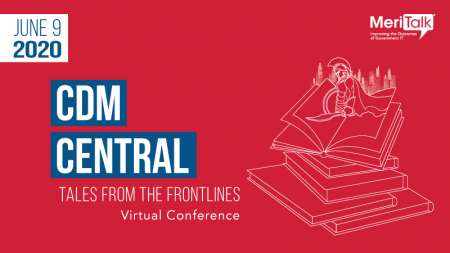
Today is “Super Junesday,” with primaries in D.C., Indiana, Maryland, Montana, New Mexico, Pennsylvania, Rhode Island, and South Dakota. In any other year, this would be a significant day for the Cybersecurity and Infrastructure Security Agency (CISA), the agency tasked with helping ensure election security across the nation. However, the COVID-19 pandemic and ongoing protests across the country have added an additional stressor.
In a call today, senior CISA officials spent the bulk of their time discussing how COVID and protests are impacting not only today’s elections but the general election in November.
Election security can frequently have a hefty price tag for states. A senior official said that the COVID-19 pandemic is hurting election officials because there is a steep drop off in tax revenue – which is the source of the majority of their funding. The official remarked that the agency has been increasing resources available to states.

As the COVID-19 pandemic stretches on, many states have either relaxed their vote-by-mail requirements and deadlines or moved their primaries to entirely vote by mail. A senior CISA official said that they expect expanding vote-by-mail in the general election and called this “good practice for November.”
However, a significant number of voters are still expected to turn up to their polling places today. A wrinkle in this is curfews that are in place in cities across the country as a response to protests. A senior official mentioned that in D.C., polls are open until 8 p.m., but the curfew begins at 7 p.m. The official said that “exceptions” and “allowances” were being made so people could get out to vote. The official said that CISA hasn’t been providing localities with direct guidance on handling voting after curfew. However, the official said CISA has been in contact and that individual jurisdictions already have the relationship with law enforcement and social groups to “make sure everyone understands the rules” and what allowances exist around the curfew.
When asked if the protests are posing any cybersecurity risk to elections, the senior official said “on a cyber front, everything looks condition normal.” The official acknowledged that there was some cyber activity surrounding the protests, specifically in Minneapolis, but said “I’m not sure we’ve seen anything in regards to elections.” However, the agency is keeping an eye on it and is “making sure we are getting the right mitigation guidance out to states.”
Circling back to expanding vote-by-mail in the general election, the senior officials were pushed to comment on President Trump’s social media posts alleging that vote by mail would lead to voter fraud and election rigging.
“You gotta keep in mind our role here,” the official said. Regarding the President’s objections, the official said, “the President’s concern is on the process side, not the administration side.” Seemingly indicating that the President’s concern is with who receives and returns ballots, not how the ballots are returned and received. However, the official said, “if the state’s go to vote-by-mail, we will offer them security solutions and services.”
Pivoting to disinformation campaigns on social media, the officials were asked if they had seen any coming from foreign adversaries. “Disinformation campaigns are hard to attribute right away,” the senior official remarked. “At this time, no indication of any disinfo campaigns targeting today’s elections, no reports from states.”
